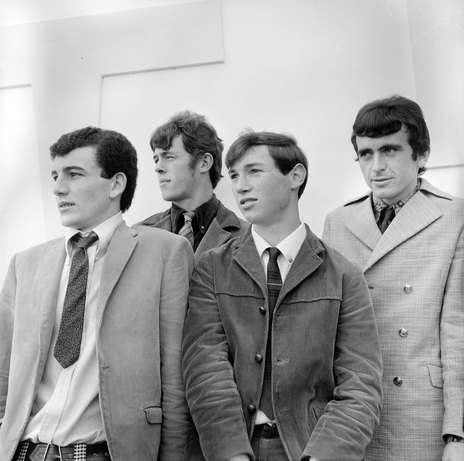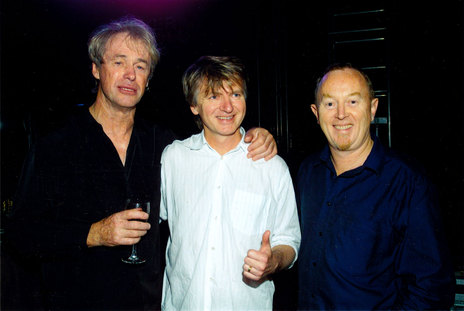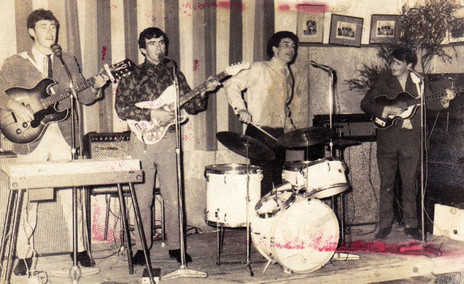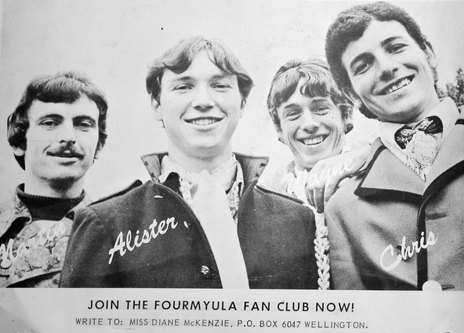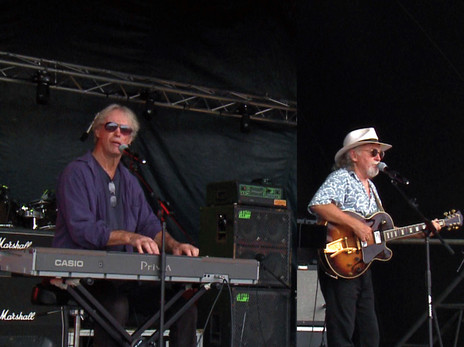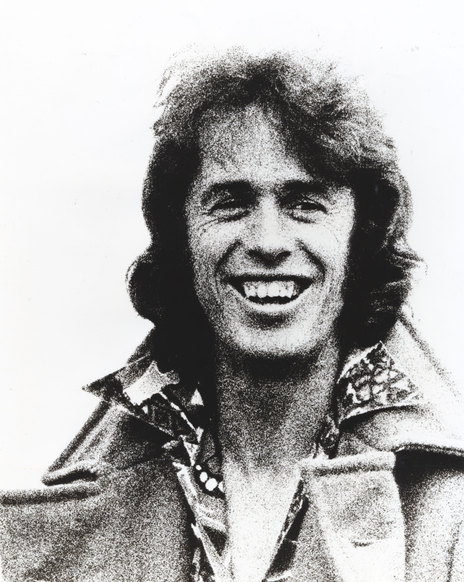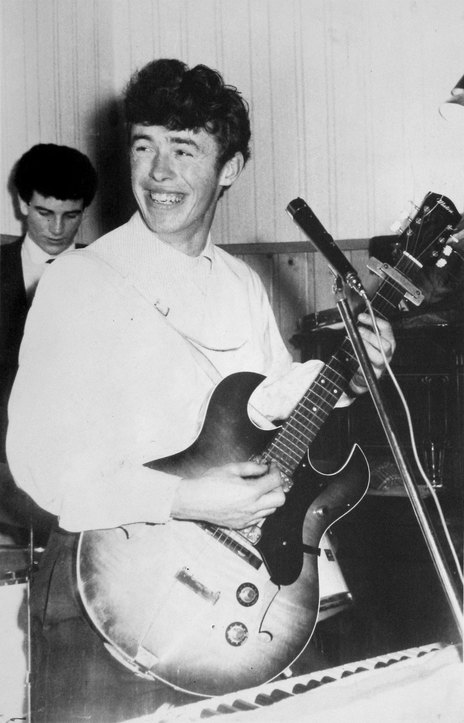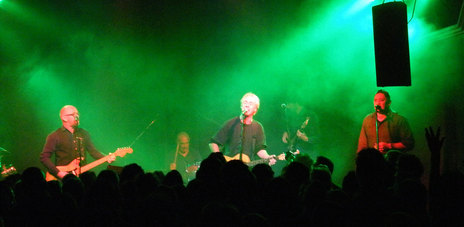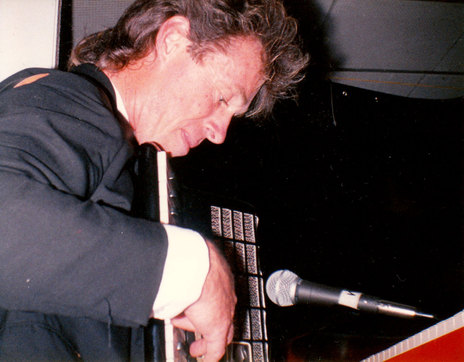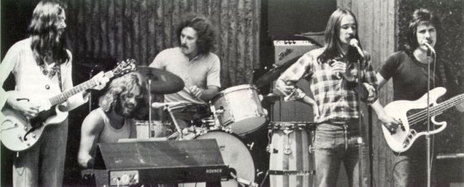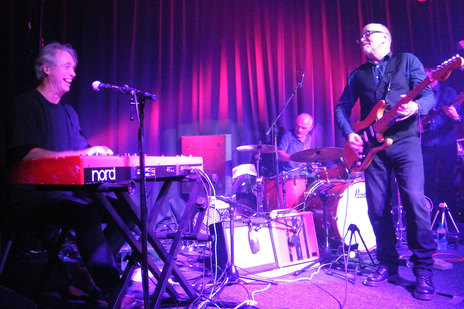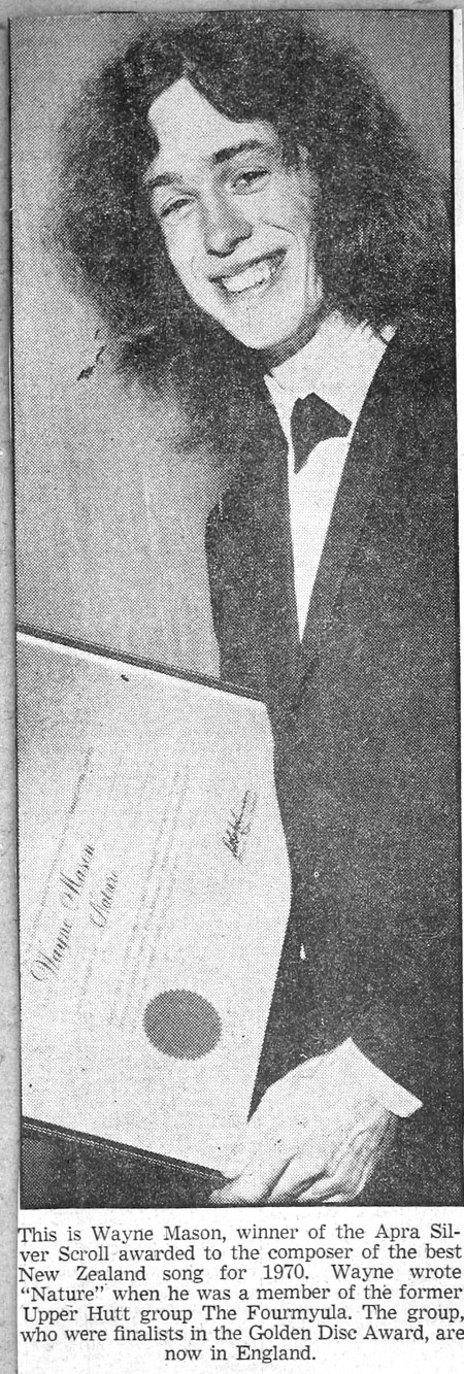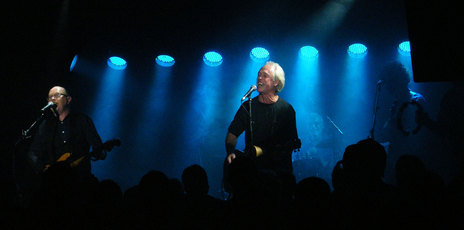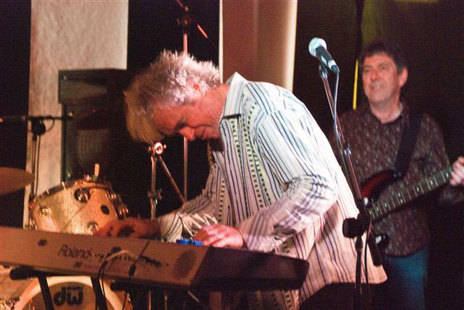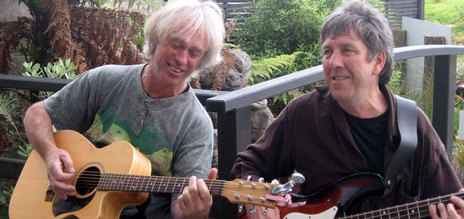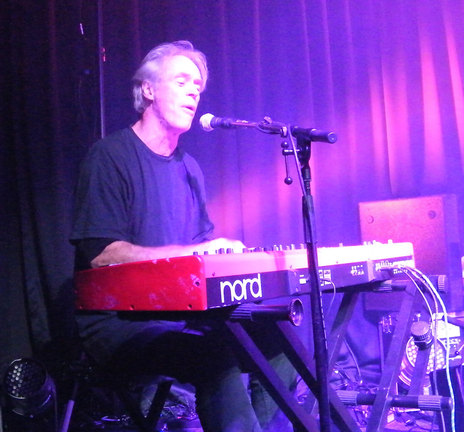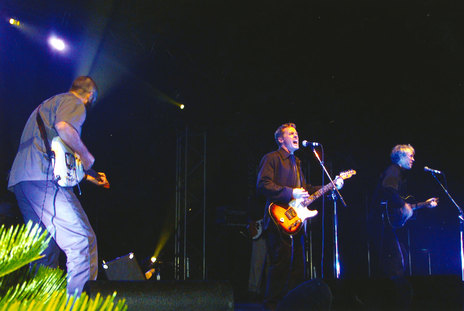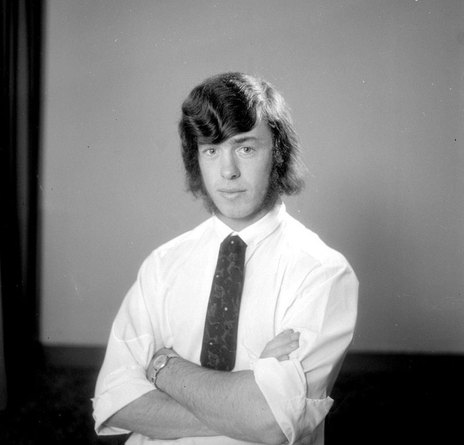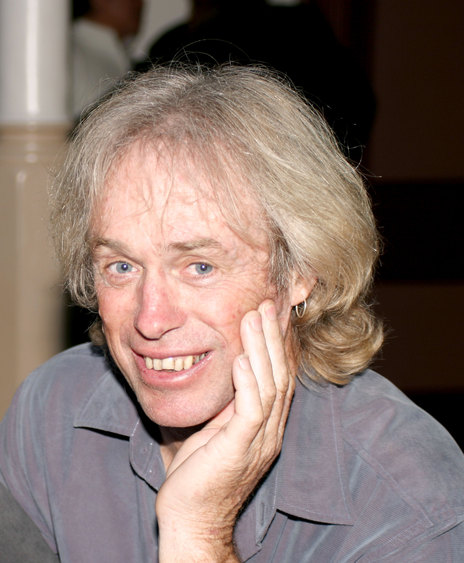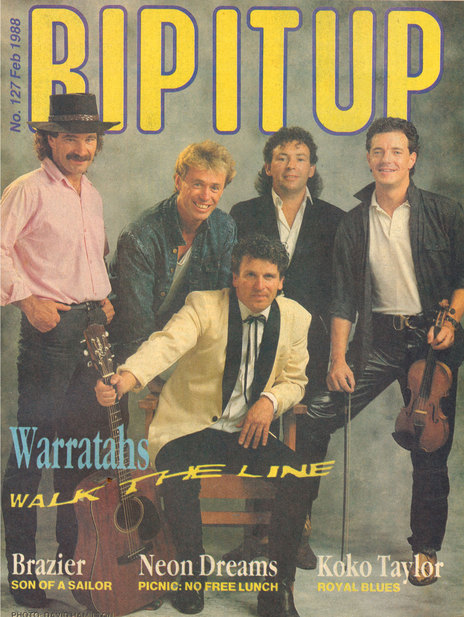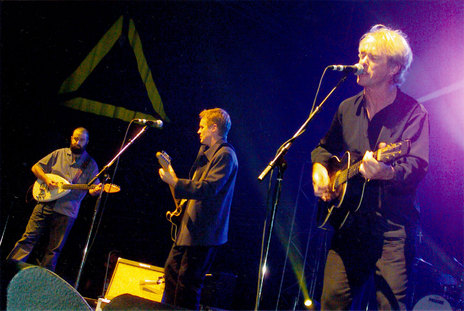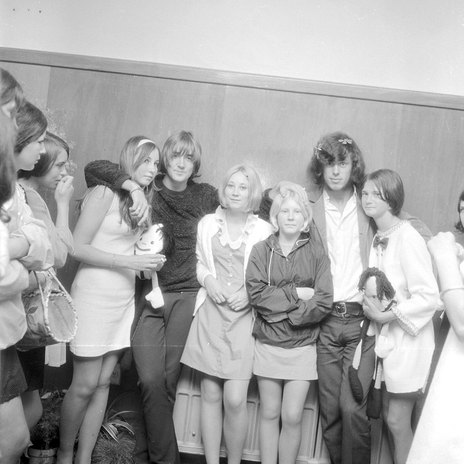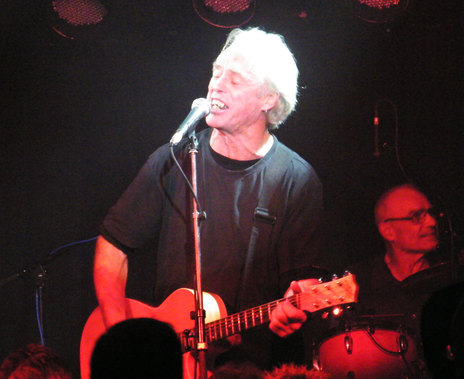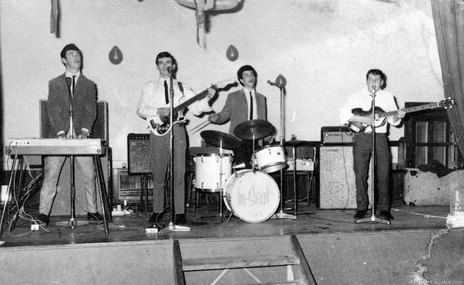In 2001 Mason's song ‘Nature’, recorded by The Fourmyula in 1969, was chosen by APRA members to be the best New Zealand composition of the previous 75 years. It has been a hotly debated issue since (check out the NZ music social media pages) and everybody has an opinion. Best New Zealand song? It was always going to be a big call, but whether you agree or not, ‘Nature’ got the nod and there has been no other “official” survey since.
‘Nature’ was Mason's first solo composition – and it came towards the end of Fourmyula’s career.
"Best New Zealand song? There have been a lot of great New Zealand songs," says Wayne Mason. "I was honoured and flattered but I'm well aware that some people have other preferences. There was quite a lot of media attention after the ceremony and for some time after, even occasionally today, I'll get stopped in the street and everybody has an opinion on what should have won." He laughs heartily, as only a winner can.
‘Nature’ was Mason's first solo composition – earlier songs had been co-written with The Fourmyula's Ali Richardson – and it came towards the end of Fourmyula's career. Struggling in London, having recorded an album destined to remain unreleased for 30 years, Mason jumped ship in 1970 and the group formally disbanded the following year.
The band's final single was a rocky wee number called ‘Otaki’, not a big hit by Fourmyula standards, but the "people turn on in Otaki" line in the chorus resonated. Actually, in 1982 Wayne Mason told me, "I wrote it in London and the song was already written when I name-checked Otaki. It was originally St Louis or some American place name."
Before returning to New Zealand in 1972, Mason, Fourmyula vocalist Carl Evensen and Kiwi expatriates Bruce Robinson (ex-The Pleazers) and Richard Burgess (ex-Quincy Conserve) teamed up as Flinders; all but Burgess returned to New Zealand.
Back in New Zealand, Mason and Fourmyula vocalist Carl Evensen formed Rockinghorse with guitarist Bruce Robinson (with whom the pair had played and recorded in London, as Flinders, with another Kiwi expatriate, Richard Burgess, on drums), plus bassist Clinton Brown and drummer Keith Norris. With Wayne Mason's songwriting once again prominent, Rockinghorse soon became a top act and at the 1975 RATA (NZ Music) Awards they picked up best group and best single for Mason's ‘Thru The Southern Moonlight’.
Rockinghorse released two albums and a handful of singles for diminishing returns. They split in 1978, by which time there had been several line-up shuffles, notably Evensen's replacement by Barry Saunders.
Saunders formed the Tigers with Mason joining the ranks in 1980. They struggled in Sydney for a year or so before Mason cut out, returning to Wellington where he formed Two Armed Men with bassist Jonathan Crayford and drummer Ross Burge. With Mason strapping on a Fender Telecaster, this was very much a musical departure for him. Crayford, now more recognised as a jazz pianist, was just starting his musical journey. "I thought [Mason] was very strange and amazing, at the same time domestic and from outer space, writing songs full of weird chords and lyrics about emotional derangement."
In 1986 Mason and Saunders launched The Warratahs to perform their shared love of country music.
In 1986 Mason and Saunders once again reunited, initially forming The Warratahs as a part-time affair to perform their shared love of country music. But with two major songwriters in the band, originals soon featured and later dominated the repertoire. Sharing songwriting duties, Mason and Saunders staved off any sense of competition during the band's early years but in 1994, after four albums and endless touring, things came to a head.
In 2001, after tempers had cooled and grievances forgotten, Mason told Lindsay Rabbit, "We had that classic argument of whose band is it anyway. The band was sort of hovering at that stage about what to do, what country to visit, and Barry and the band couldn't share the same vision. What happened, I think, was that the band had always been dominated by Barry. He was the singer and a major writer, and as the band matured, my writing became not so countrified and the band had to grow to accommodate the depth of stuff we were doing – and I don't think Barry was prepared to do that." (NZ Listener, 1 September 2001).
More recently, Mason told me, "The direction of the band wasn't where I was heading and I think Barry needed more space for his own stuff. Of course, I got all shitty about it at the time but, in fact, leaving The Warratahs allowed me to enter into a new period of songwriting, writing for me."
In the years since The Warratahs, Mason has released three solo albums – Between Frames (1995), Same Boy (2001) and Sense Got Out (2007). None have been huge sellers but they have the indelible stamp of a master craftsman, critically acclaimed and well-respected by fellow-songwriters.
In the years since The Warratahs, Wayne Mason has released three solo albums.
By his own description, many of Mason's songs have a dark side. But that discounts those songs which vividly capture New Zealand's scenery, something which Mason has returned to again and again. His advice to young songwriters is very simple – keep it simple! "If no one understands them, no one gets them," he says.
"I've had very fertile periods, which to me might mean, say, writing 20 songs in a year. Other years maybe only half a dozen or four or five. I realise that a lot of my songs are melancholy, woe-is-me stuff, it's all about me, but I've recently written a few songs which are a little more buoyant."
Wayne Mason currently plays in more than half a dozen acts – duos with Clinton Brown and Andrew London, the John Waynes (with John Donoghue), the X-Ray Cats, the Gospel Blues Show, the Grown-Ups, Too Many Chiefs, the Little Big Band (now renamed The Superheaters), the Back Porch Blues Band … "The money is so tough these days," he says, "performance fees are so small, I couldn't get by in just one band."
Pounding a boogie-woogie piano, ripping out some rockabilly or country, gospel and blues, he certainly mixes it up. And then there are those “Wayne Mason” shows, performing his own songs. With over 100 to choose from, and three solo albums, does he get annoyed with the audience's expectation for that song?
"Not at all. Well maybe 20-30 years ago I didn't rate it as highly as I do now. But sometimes you are not the best judge of your own songs. I think people like to hear the songs that they are familiar with and it can serve as a focal point of all your whole performance, something to hang the other songs onto. Otherwise, you lose an opportunity to reach people. People hear 'Nature' and go, oh that guy. 'Nature' has been good to me and, anyway, as I say, often the songwriter is not the best judge of his songs."
